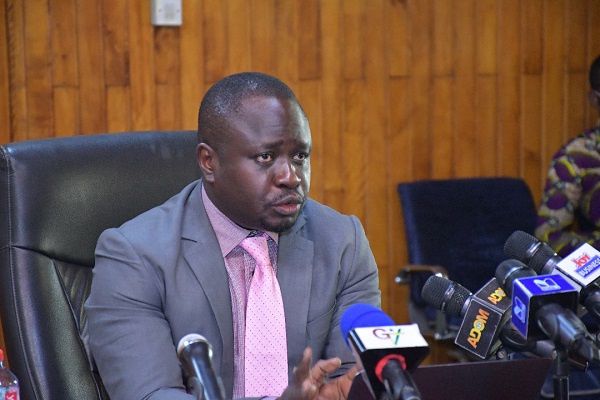The Government Statistician, Prof Samuel Kobina Anim, has advocated a strong National Statistical System that will be independent and will not be influenced by the government.
Citing the U.K. and the U.S.A as examples, he stated that the National Statistical System could be valuable in publishing undisputed facts and figures during elections.
The Amaris Institute of Statistics and Economic Research seeks to address the problems of statistical capacity gaps in Anglophone West Africa by offering timely technical support to help disseminate data through an open data platform and provide just-in-time thematic reports to inform policy decisions.
The Institute also plans to develop a structured training programme across all member countries to ensure uniformity in statistical practices.
At the launch, Government Statistician, Prof Samuel Kobina Annim re-echoed the need for statistical services to work independently without governmental influence.
“We need to get to a point where we define our independence based on our authority of the National Statistical System where the government statistical services as we have in the UK can boldly say that if you misuse statistics, we will put it in the right order”.
“But If your board is made up of government employees, and the government statistician is scared of political issues then we’ll be careful in our dispensation”, he mentioned.
The Chief Executive of the Institute of Statistics and Economic Research, Dr Emmanuel Fiadzo outlined the objectives of the institute.
According to him, “The main objective of AmariStat is to help NSOs with a pre-emptive capacity building framework to enable benchmarking NSOs’ efforts on the African Continent. The aim is to guide NSOs of member countries to embed in their NSDS a unified and structured capacity building framework”.
The Amaris Institute of Statistics and Economic Research seeks to complement the World Bank and the International Monetary Fund's efforts to strengthen the capacity and deliver high-quality data through multi-donor trust fund programs.
The institute believes despite modest improvements in social and economic statistics in the West African region in recent years, if the growing statistical capacity gaps are not effectively addressed, they could undermine the ability of national development authorities to plan, implement, and monitor progress on the growth and poverty reduction strategies and progress towards attaining the developmental goals.
The suggested approach to address the statistical capacity challenges includes the preparation, adoption and implementation of a roadmap, creating a work plan for donor engagements, guiding the implementation of the key deliverables of the NSDS to achieve results and establishing a financing architecture for effective capacity building.
Latest Stories
-
Erpreben Travel & Tour donates air conditioners to Osu District Police Command
24 minutes -
Amewuga campaign fights human trafficking, child marriage, others at Aflao border
44 minutes -
WAFCON 2024: Rampant Nigeria smash five past Zambia to reach semis
1 hour -
UCC SRC’s sanitary pad initiative champions dignity and inclusion
1 hour -
Passion to Pouring cocktail tasting event unites culture and creativity in Ho
1 hour -
Ketu South MCE reaffirms pledge to deliver Mahama’s reset agenda
1 hour -
MTNPulse, Stanbic Bank equip youth to build digital brands and businesses
2 hours -
I created ‘Shoulder’ challenge for fun but Medikal compensated me – Dancer Lalli
2 hours -
Students urged to pursue careers in aviation industry
2 hours -
Ghanaian music inspires Jullian Ellison to compose Afro-pop tracks
2 hours -
A/R: Police investigate death of TikTok sensation ‘Atom De Morale Spirit’
3 hours -
My ex-girlfriend left me for a guy with a Corolla – Kuami Eugene
3 hours -
Prosecute 2020, 2024 election offenders swiftly – Interior Minister directs IGP
3 hours -
Ghana’s Strategic Crossroads: Navigating a potential drone partnership with Ukraine amid governance concerns
4 hours -
Health Minister outlines key challenges in Ghana’s Health Sector
4 hours

